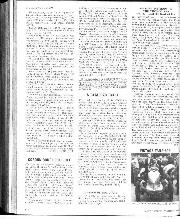
Factory methods of the vintage era
No. 20—Hoyal the Coachbuilders IN 1929 Hoyal was a name well-known in both the car and boating worlds. The Company made motor-boats at Hamworthy in Dorset and bodywork for cars…
A BRITISH CAR RADIO SET
WHEN one considers the efficiency of British radio components and valves, it has always been remarkable that none of our manufacturers had thought fit to enter the market. The series of sets announced by Lissen, Ltd., of Worple Road, Isleworth, Middlesex, are therefore of particular interest. As is usual in car installations, the moving-coil speaker is carried under the dash, the controls, which have large and easily manipulated knobs, are carried on the steering column, while the set is accommodated in a small steel case
carried beneath the floor boards. The valve filaments are heated from the car batteries, while the H.T. is obtained either from dry batteries or from a converter which works from the car lighting circuit. Six valves are used in the first case, but only five are required with the higher voltage derived from the converter.
Both long and short wave ranges may be received, automatic volume control keeps the output constant even in the vicinity of steel buildings, bridges and other deflectors of radio energy.
While the undistorted power-output is two watts, in less technical terms this means that the power is ample to fill a large dining-room, 30 ft. by 30 ft., at a high standard of quality, and comfortable reception should be possible even in an open car driven at high speed.
Suppressors for the sparking plugs are provided, and filters prevent interference from the commutator of the dynamo. Fitting is quite a simple job and can be undertaken by any competent mechanic. The battery models (6 or 12 volts) cost 16 guineas, while those fitted with generators cost 20 guineas.